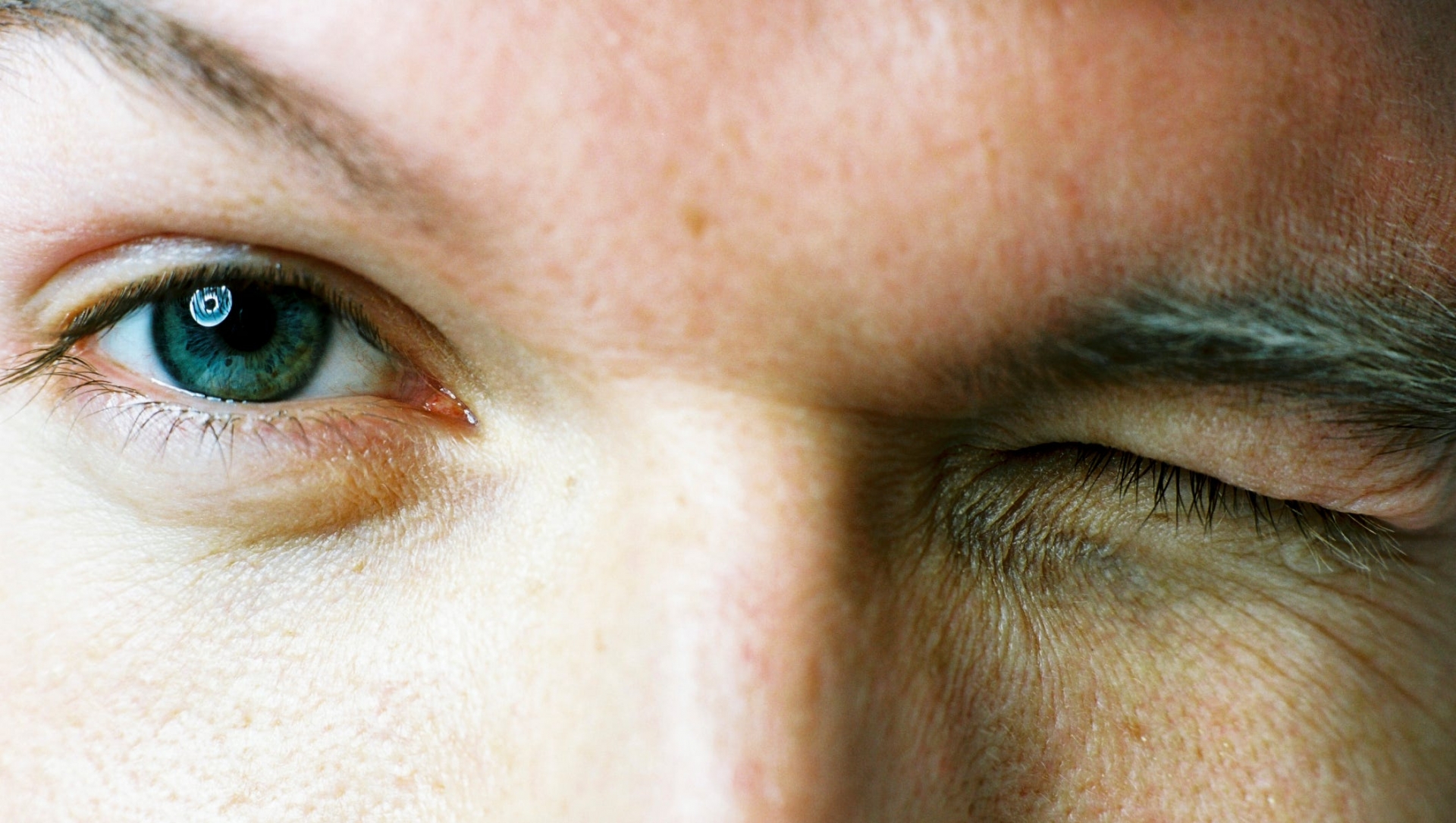Top 20 Weird Things That People Do Every Day
 |
| werid thing. Photo: Mixi's |
We are all fans of doing the most bizarre things. Sometimes in big ways. Often in small and daily ways to mix things up. This is also an easy and simple way to expand your comfort zone and to keep your curiousness up.
The same goes for the rest of our traits. We take for granted that funny things make us yell out spastically also known as laughing and that we spend one-third of every day in a deathlike state of suspended animation known as sleep. But with a little contemplation, these behaviors seem truly bizarre.
The list of 20 weird and bizarre things people do every day
1. Blushing
2. Preferring one hand to another
3. Doing stuff that's bad for us
4. Crying
5. Hiccuping
6. Day Sleeping
7. Farting
8. Laughing
9. Ogling
10. Dreaming
11. Kissing
12. Blinking
13. Shaving
14. Having sex
15. Walking
16. Telling Lies
17. Gossiping
18. Getting bored
19. Thinking about dying
20. Practicing religion
What are 20 weird things that people do every day?
1. Blushing
Turns out, the cheek-reddening reaction is a universal human response to social attention. Everyone does it, some more than others. Common blushing triggers include meeting someone important, receiving a compliment and experiencing a strong emotion in a social situation.
2. Preferring one hand to another
Take another look at those hands of yours. You have two of them, correct? Then why is it that you tend to use just one of these appendages for so many tasks?
Whether you're a leftie or a righty, the fact that you have a dominant hand at all is a bit weird, according to scientists. After all, having two hands with excellent motor skills would be a real boon for humans.
One theory about why people have dominant hands has to do with the way the brain processes speech. The theory holds that the left brain hemisphere — where the speech center of most humans resides — is more intricately wired than the right brain hemisphere. The left brain hemisphere also happens to control the right side of the body. It's possible that the extra wiring in this part of the brain is behind the dominance of the right side of the body in right-handed people.
However, researchers have found that not all righties have speech centers residing in the left brain hemisphere. In other words, this theory might not be correct. However, there are lots of other theories that could help explain human handedness.
3. Doing stuff that's bad for us
 |
| Photo: BBC |
Smoking cigarettes, drinking heavily, using drugs — all of these things are bad for us, and yet, setting these self-destructive behaviors aside can be a real chore. Why is it so hard for humans to ditch their bad habits? Scientists list several reasons for why we don't always know what we know is good for us.
Aside from a genetic predisposition for certain addictive habits, some people might engage in risky behavior, like using drugs or alcohol, because they're not really thinking through the consequences of these actions, according to Cindy Jardine, a professor in the School of Public Health at the University of Alberta, in Canada.
4. Crying
How odd that sadness causes water to spill from our eyes! Among all animals, we alone cry tears of emotion.
Not only do they serve the purpose of communicating feelings of distress, scientists believe tears also carry certain undesirable hormones and other proteins that are produced during periods of stress out of the body, which may explain the cathartic effect of "a good cry."
5. Hiccuping
Hiccups are involuntary spasms of the diaphragm the muscular membrane in your chest that figures importantly in breathing. A spell of them ensues when that muscle gets irritated, often by the presence of too much food in the stomach, or too little.
Weirdly, though, hiccups are as useless as they are annoying; they serve no apparent purpose. One hypothesis suggests they may be a remnant of a primitive sucking reflex. Whatever the ancient function, they are little more than a nuisance now something to be gotten rid of via a variety of creative folk
6. Day Sleeping
 |
| Photo: BALLMEMES |
It is said that we spend one third of our life in sleeping. No body can live without sleeping . Sleeping maintain your body functions properly. Our brain get a complete refresh with good sleep. People who are working hard in office often get sleep during work in a bizarre way. Most of the time it become a fun part for people around you.
7. Farting
Farting, we do or may not but most commonly in daily routeen. The answer may stink, but everything we eat or drink gives us gas. In fact, it’s normal to fart up to half a gallon or about 15 to 20 toots worth of gas each day.
8. Laughing
The punchline of a joke hits you, and with it comes a funny feeling: You’re suddenly overcome by the urge to yell out spastically , over and over. Laughing is weird. Why do we do it? Psychologists think this behavioral response serves as a signal to others by spreading positive emotions , decreasing stress and contributing to group cohesion. For those same reasons, chimps and orangutans smile and laugh during social play too.
9. Ogling
 |
| Photo: TV Fanatic |
No doubt one of the most bizarre things we do in our daily life; Ogling is referred to stare at in a lecherous manner. Most of people you will see in daily routine ogling at opposite sex. And yeah here is a good news for girl watchers. Ogling over women’s breast is good for man health and can add years to his life, medical experts said that. But to be honest most of the time you will feel embarrassment if you get caught.
10. Dreaming
Sleep seems to serve a vital function for us humans, but what about dreaming? It's something we do almost nightly, but does it serve a greater purpose?
The truth is that scientists aren’t completely sure why people dream. However, theories on the purpose of dreaming abound. One theory, proposed by Harvard University psychologist Deirdre Barrett, suggests that humans dream in order to solve problems. More specifically, the highly visual (and sometimes completely illogical) landscape of dreams help us think differently about our problems than we would in waking life. This "out-of-the-box" thinking might help people solve problems that they just can't resolve while awake, according to Barrett.
11. Kissing
It's weird, when you think about it, that swapping spit seems romantic. Turns out it's a biological instinct.
Kissing allows people to use smell and taste to assess each other as potential mates. People's breath and saliva carry chemical signals as to whether they are healthy or sick, and in the case of females, whether they're ovulating all important messages for potential partners in reproduction.
Furthermore, the skin around peoples' noses and mouths is coated with oils that contain pheromones, chemicals that broadcast information about a person's biological makeup. When people pick up each other's pheromones during a sloppy kiss, they'll subconsciously become either more or less sexually attracted to each other depending on what they detect.
Alongside the chemosensory cues exchanged during kisses, psychologists also believe the actual physical act of kissing helps couples bond. This theory is supported by the fact that oxytocin a hormone that increases most peoples' feelings of sociality, love and trust floods brains when mouths kiss.
12. Blinking
 |
| Photo: www.azcentral.com |
It's not that strange that we blink: The tenth-of-a-second-long activity clears away dust particles and spreads lubricating fluids across the eyeball. What is strange, though, is that we fail to notice the world plunging into darkness every two to 10 seconds!
Scientists have found that the human brain has a talent for ignoring the momentary blackout. The very act of blinking suppresses activity in several areas of the brain responsible for detecting environmental changes, so that you experience the world around you as continuous.
13. Shaving
It happens pretty much every day: We get up, face the mirror, reach for our shaving tools, and commence with a major requirement of our daily routine. By now, we all know shaving as that robotic, mundane task thrust upon us by a civilized world. We have been doing it since we were teens.
14. Having sex
Yes, yes: everyone knows sex is how we reproduce. But why have two sexes in the first place, instead of a uniform population of asexually-reproducing individuals? After all, with twice the number of moms, populations of asexual organisms grow at double the rate of sexual organisms in lab experiments.
Biologists' best answer, called the Red Queen hypothesis, holds that organisms and the parasites that live on them are running a race in which they constantly evolve in response to each other's genetic mutations, maintaining an overall balance. Sex, the theory holds, gives host organisms a leg-up on this evolutionary treadmill by allowing two such organisms to shuffle their genes, creating new, rare combinations in their offspring and new challenges for coevolving parasites.
15. Walking
 |
| Photo: Know Your Meme |
When we walk, there’s a certain way to do it. We put one foot in front of the other and swing our arms back and forth in a kind of robotic way. If you don’t swing your arms while walking you look super weird for some reason.
16. Telling Lies
Here's a lesson you've probably learned on plenty of occasions: People lie. We do it for many reasons (some malicious and others completely benign), but everybody lies sometimes. And we'd be lying if we said we knew why.
The truth is that scientists aren't sure why humans tell lies, but they do know that lying is common and that it is likely linked to several psychological factors. Foremost among these factors is self-esteem, according to Robert Feldman, a psychologist at the University of Massachusetts. Feldman, who studies the underlying causes of human deceit, has found that when a person's self-esteem is threatened, he or she will "immediately begin to lie at higher levels."
"We're trying not so much to impress other people but to maintain a view of ourselves that is consistent with the way they would like us to be," Feldman told Live Science in 2006. In other words, people often lie to make social situations easier. This might mean telling a lie to avoid hurting someone else's feelings or to avoid a disagreement.
17. Gossiping
If you're like most humans, then you've probably been on at least one end of the grapevine a few times. Like it or not, gossip is a part of everyday life. In fact, scientists speculate that gossip may actually bring us humans closer together.
| Robin Dunbar, a primatologist at Oxford University in the United Kingdom, likens gossip to the constant grooming of other primates. Baboons pick bugs out of each other's back hair; we humans talk about others behind their backs. It's the verbal glue that keeps our social bonds strong, according to Dunbar. Other researchers, such as Jennifer Bosson, a professor of psychology at the University of South Florida, agree that sharing our dislikes of others helps develop a bond between the gossiper and the listener. |
18. Getting bored
 |
| Photo: Askideas.com |
Everybody gets bored sometimes. But, if you really think about it, feelings of boredom are pretty strange. After all, there's a whole wide world full of stuff to do. How could humans ever lack for something to keep us occupied?
It turns out that boredom isn't really about keeping busy. Boredom stems from an objective lack of neurological excitement, which brings about a subjective psychological state of dissatisfaction, frustration or disinterest, according to researchers who study this yawn-inducing subject.
And some people are more prone to boredom than others. People who have conditions that affect their ability to pay attention (like ADHD) might be more susceptible to boredom, according to a study published in the journal Perspectives on Psychological Science in 2012. Age might also play a role in determining someone's susceptibility to boredom. Researchers have found that people nearing the end of their young adulthood, around age 22, may be less likely than teenagers to get bored.
19. Thinking about dying
Ever think about dying? If you answered "no" to that question, then you're not like most folks, for whom thoughts of death and dying are "very common and very natural," according to Pelin Kesebir, an assistant scientist and psychologist at the Center for Healthy Minds at the University of Wisconsin-Madison.
While obsessing over one's own mortality isn't necessarily normal, us humans do tend to think of our own demise (or that of loved ones) from time to time. People might think about death a lot because of our sophisticated brains, Kesebir told Live Science in September 2016. Our minds "make us painfully aware of inevitable mortality, and this awareness clashes with our biologically wired desire for life," she said.
This morbid pondering causes anxiety for some, while for others it can be a source of "immense clarity and wisdom," she added.
20. Practicing religion
While many Americans nowadays are opting out of organized religion, billions of people around the world practice the world's major religions, which include Christianity, Islam and Hinduism.
But where did religion come from in the first place? While each faith has its own origin story, the story behind how religious thought first cropped up in humans can also be explained by science. One of the most popular religious origin theories has to do with what researchers call the "god faculty."
Early humans lived in a world in which they had to make quick decisions to avoid peril — the ones who sat around wondering whether that sound they heard behind them was a lion or just the wind in the grass were quickly dispatched. Early peoples that survived to procreate had developed what evolutionary scientists call a hypersensitive agency-detecting device, or HADD, according to Kelly James Clark, a senior research fellow at the Kaufman Interfaith Institute at Grand Valley State University in Michigan.
 Top Bizarre and Wonderful Ways to Make Money Top Bizarre and Wonderful Ways to Make Money You are trying to make money to have a better life, why don't you consider the list of the top 10 bizarre and wonderful ways ... |
 Top 10 Weird and Wonderful Ways to Make Money in 2021/2022 Top 10 Weird and Wonderful Ways to Make Money in 2021/2022 2022 is around the corner. Have you ever thought of any ways to make money for the year coming. Check out the list of 10 ... |
 Top 10 Weirdest & Rarest Jobs in the World Of All Time Top 10 Weirdest & Rarest Jobs in the World Of All Time You might not know that there are tons of strangest careers around the world in history, but they did exist. Curious? Tuning the top 10 ... |


























